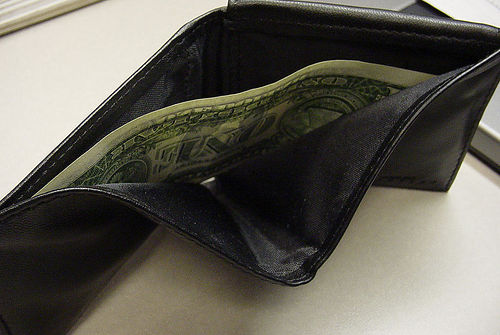I know, I know. I shouldn’t be getting a tax refund, because I should have my deductions set correctly to avoid giving the government an interest free loan. I know. But the fact is, I typically err on the side of caution. I’d rather give the government an interest free loan than owe a huge lump sum of money during tax time.
This year, we’d probably be expecting a refund anyway since we got married half way through the year. Because I make twice as much as Tony, we’ll most likely get a tax discount for filing jointly. Which means we’d be getting a little money back anyway.
How much? The fact is, I don’t know. But in the past, I’d have plans for what I was going to buy with that money regardless.
I’ve used my tax refund to buy a new wardrobe, take a vacation, and buy more electronics than I want to think about. Sometimes I was so broke that I had to wait until I received the refund to spend it. Sometimes, though, if I knew it was coming, the spending spree started before I even received the check.
This year, I’m not spending a dime of it. I already know what I’m going to do with the money, and it doesn’t involve a spending spree. It’s going directly into a savings account to help us cover the two months out of the year when Tony won’t receive his teaching salary.
I bristle at some of the tax preparation commercials I’ve been seeing on TV lately. “Need a vacation? Bring your taxes to us, and we’ll get you the tax refund you need to pay for it.”
The fact is, a tax refund isn’t “extra money.” It’s money that you should have been getting in your paycheck all year, which means the same rules apply to your tax refund as your regular income — don’t blow it.
I realize there are situations where a lump sum tax refund might be helpful. For instance, if you’ve been avoiding major car repairs because you don’t have the lump sum to pay them. That’s completely understandable. By all means, use your refund to get your car in working order.
But if you’re considering using your refund for something unnecessary, I urge you to think of that money as regular income. Can you really afford to spend it? Do you have a 6- to 8-month emergency fund in place? Are you debt-free? Are you fully funding your retirement accounts and education savings accounts? If the answer to those questions is yes, then maybe you can afford a big vacation or a new wardrobe right now.
But if you’re like me — with a tiny savings account, way too much debt, and a non-existent retirement account — then you’d probably be better off putting that money to more practical use.




